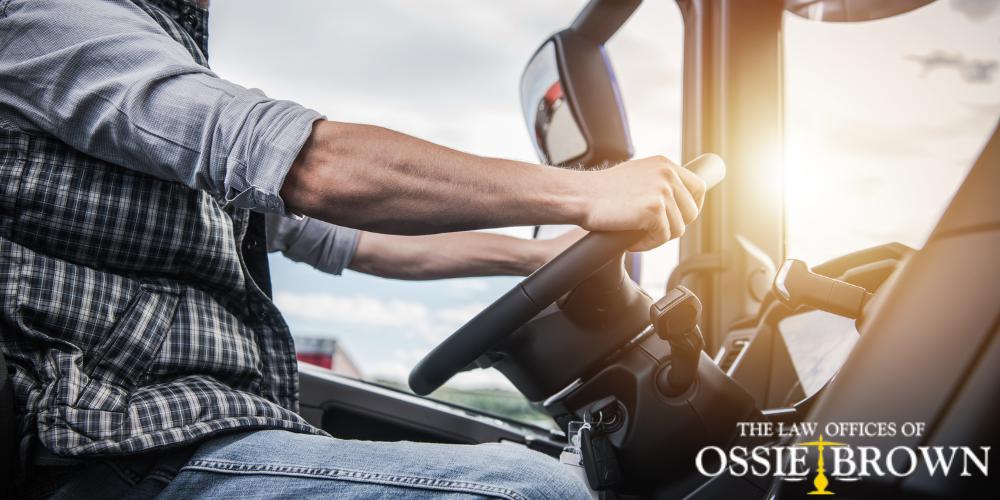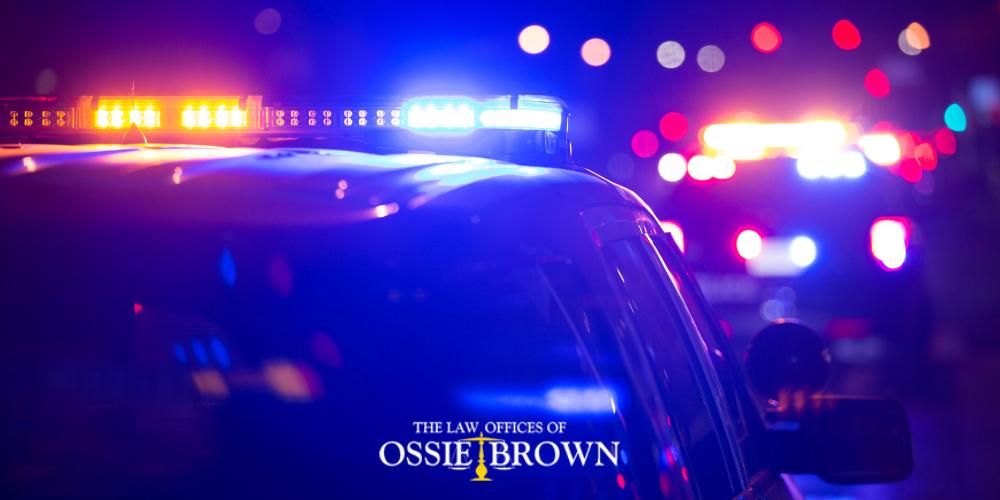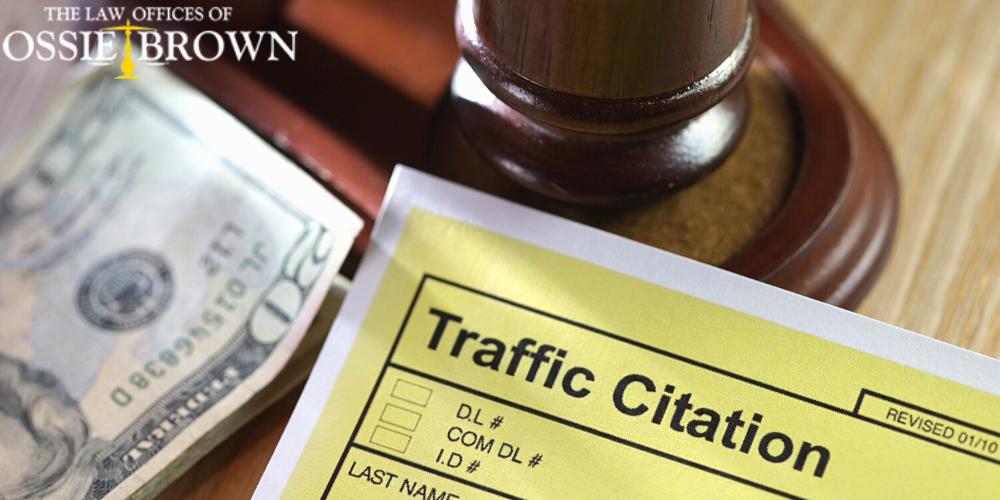Baton Rouge CDL Lawyer
Practice Areas
Baton Rouge CDL Ticket Lawyer
Anyone can get pulled over by a police officer and receive a traffic ticket for speeding, running a red light, driving while intoxicated, etc. This includes people with a Class E driver’s license (AKA a non-commercial or personal license) or those with a commercial driver’s license (CDL). Those who have a CDL are typically truck or bus drivers who work for large corporations, and therefore, they are held to a higher standard while driving. Getting a CDL ticket can be devastating to your career, whether you were rightfully or wrongfully ticketed. That’s why you need a Baton Rouge CDL ticket lawyer on your side. Our experienced Baton Rouge traffic ticket lawyer team can help you fight for the best possible ticket outcome. Call 225-343-1111 to schedule a free consultation at our the Law Offices of Ossie Brown today.

What is a CDL?
A CDL or commercial driver’s license is required to operate a commercial motor vehicle in the United States. Different types of commercial vehicles require specific licenses. A CDL is essential to be a professional truck driver.
Different Types of CDLs
Commercial vehicles are divided into categories, Class A, B or C, based on size, weight, and function. For example, a different license is needed to drive an 18-wheeler hauling a heavy load versus a school bus.
- Class A CDL: This class CDL is required to operate commercial vehicles such as 18-wheelers.
- Class B CDL: This class CDL is required for operating school buses, city or tour buses, straight trucks, dump trucks, small vans or refrigerated trucks.
- Class C CDL: This class CDL is required for small HAZMAT trucks, passenger vans, and small trucks towing a trailer.
Louisiana CDL Violation Types
The Federal Motor Carrier Safety Administration (FMCSA) is the federal government body that regulates the trucking industry in the United States. Federal agencies like the FMCSA and the U.S. Department of Transportation (DOT) work to devise a system of laws to keep truck drivers and companies operating in a way that is safe to them and other vehicles on the road. This set of rules encompass a wide range of or trucking industry issues, including some of the following:
- Vehicle inspection and maintenance
- Fueling requirements
- Vehicle parts
- Driver training and hiring
- Emergency protocol, licensing, and record keeping
- Truck loading and unloading
- Hazardous cargo
- Drug and alcohol use
- Safety devices that must be used if a truck breaks down
A trucking violation occurs when one of these rules is broken by a semi driver, trucking company, or other group or individual involved in the trucking industry. The following are some of the most common trucking violations:
- Moving violations, such as speeding violations
- Hours of service violations
- Overloading or improper loading
- Substance abuse
- Record keeping violations
- Driver’s license violations
There are a number of other violations that occur regularly within the trucking industry. These include driving while using a mobile phone, neglecting to conduct proper pre-trip inspections, allowing unauthorized passengers on board, failing to wear a seatbelt while driving, inadequate training for drivers, and not using the proper warning devices when stopped on the side of a road or highway. All of these violations can significantly increase the risk of an accident.

CDL Speeding Tickets vs. Non-CDL Speeding Tickets
The impact a traffic violation has on a commercial driver’s privileges depends on whether the violation occurred in a commercial vehicle or a personal vehicle.
Speeding Tickets in a Commercial Vehicle
The consequences of a speeding ticket are usually more severe if the CDL holder received the violation while operating a commercial vehicle. However, the amount by which the driver exceeded the speed limit is also a factor that affects how the ticket will impact commercial driving privileges.
Speeding Ticket in Personal Vehicle With CDL
Generally, a speeding ticket in a personal vehicle will not affect the driver’s commercial driving privileges. Although there are a few exceptions. When a speeding traffic violation results in the suspension of standard driving privileges, it may be recorded as a serious traffic violation for CDL purposes.
How Long Does a Speeding Ticket Stay on Your CDL Record?
The length of time between violations is important. Though traffic violations generally stay on the commercial driver’s record for life, they will typically affect CDL privileges only for a limited period of time. Calculation of serious traffic violations only goes back three years and license demerit points normally expire after two or three years.
CDL Speeding Ticket 15 Over in Baton Rouge
Operating a commercial motor vehicle 15 miles per hour over the speed limit will lead to the standard fines, fees, and demerit points, and will also be recorded as a “serious traffic violation” against the driver’s CDL. Committing multiple serious traffic violations within three years will result in license revocation, this includes speeding 15 miles per hour or more over the limit.
Can You Get a CDL With a DUI in Baton Rouge?
The consequences of a DUI arrest and conviction are more severe if you have a CDL. The consequences depend on a number of facts such as the nature of the offense and the cargo you were transporting at the time of your arrest for DUI.
Under Louisiana DUI law, drivers of commercial vehicles (including school bus drivers) are legally drunk when their blood alcohol concentration is 0.04 percent or greater.
A one-year disqualification period is imposed if the commercial driver:
- Is convicted of DUI,
- Has a BAC 0.04% while driving a commercial vehicle,
- Has a BAC 0.08% or above in a commercial vehicle (CMV) or personal vehicle,
- Refuses to take a breathalyzer test in a CMV or personal vehicle,
- Commits a felony in a CMV or personal vehicle,
- Or leaves the scene of an accident (Louisiana hit and run) in a CMV or personal vehicle.
Meanwhile, a three-year disqualification period is imposed if the violation/conviction involves handling hazardous materials.
For experienced legal assistance, contact a Baton Rouge CDL DUI attorney at our law firm.
Why You Need a Baton Rouge CDL Traffic Ticket Lawyer
If your CDL is in jeopardy in Louisiana because of moving violations or a DUI conviction, you should seek the advice of an experienced attorney. You should not just pay the fine without speaking to a legal representative first. By paying the fine, you are basically pleading guilty to a charge that could affect your driving record and, ultimately, your ability to keep driving. An experienced CDL ticket lawyer can review the charges and evidence against you and discuss how the state laws could affect your commercial license.

Baton Rouge CDL Lawyers
The stakes are high for commercial drivers if they receive a ticket. CDL holders can lose their livelihood for getting one too many traffic convictions. If you’re a commercial driver in Baton Rouge, Louisiana in this situation, call one of our experienced attorneys at the Law Offices of Ossie Brown today at (225) 343-1111 to discuss your options for fighting your ticket.
Free Consultation
Let us review your case at no cost to you. We want to take the time to get to know you and understand your legal goals and objectives.
Why Our Clients Trust Us
Your Law Firm for a Lifetime.
The attorneys at The Law Offices of Ossie Brown are skilled in several practice areas and ready to discuss your case. Contact us today to schedule your free consultation.

